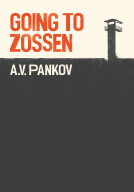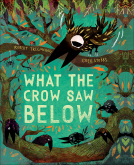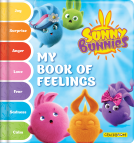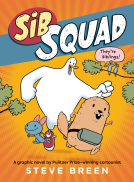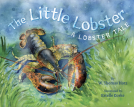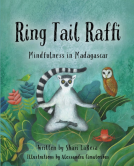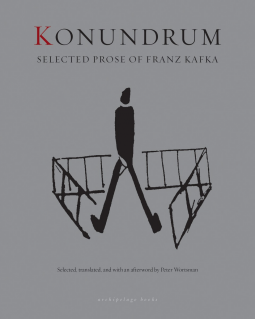
Konundrum
Selected Prose of Franz Kafka
by Franz Kafka
This title was previously available on NetGalley and is now archived.
Send NetGalley books directly to your Kindle or Kindle app
1
To read on a Kindle or Kindle app, please add kindle@netgalley.com as an approved email address to receive files in your Amazon account. Click here for step-by-step instructions.
2
Also find your Kindle email address within your Amazon account, and enter it here.
Pub Date Nov 01 2016 | Archive Date Aug 16 2016
Archipelago Books | Archipelago
Description
Contents:
• Words are Miserable Miners of Meaning
• Letter to Ernst Rowohlt
• Reflections
• Concerning Parables
• Children on the Country Road
• The Spinning Top
• The Street-Side Window
• At Night
• Unhappiness
• Clothes Make the Man
• On the Inability to Write
• From Somewhere in the Middle
• I Can Also Laugh
• The Need to Be Alone
• So I Sat at My Stately Desk
• A Writer's Quandary
• Give it Up!
• Eleven Sons
• Paris Outing
• The Bridge
• The Trees
• The Truth About Sancho Pansa
• The Silence of the Sirens
• Prometheus
• Poseidon
• The Municipal Coat of Arms
• A Message from the Emperor
• The Next Village Over
• First Sorrow
• The Hunger Artist
• Josephine, Our Meistersinger, or the Music of Mice
• Investigations of a Dog
• A Report to an Academy
• A Hybrid
• Transformed
• In the Penal Colony
• From The Burrow
• Selected Aphorisms
• Selected Last Conversation Shreds
• In the Caves of the Unconscious: K is for Kafka (An Afterword)
• The Back of Words (A Post Script)
Advance Praise
• "Kafka's survey of the insectile situation of young Jews in inner Bohemia can hardly be improved upon: 'With their posterior legs they were still glued to their father's Jewishness and with their wavering anterior legs they found no new ground.' There is a sense in which Kafka's Jewish question ('What have I in common with Jews?') has become everybody's question, Jewish alienation the template for all our doubts. What is Muslimness? What is femaleness? What is Polishness? These days we all find our anterior legs flailing before us. We're all insects, all Ungeziefer, now." --Zadie Smith
• "[Kafka's] stories are dreamlike, allegorical, symbolic, parabolic, grotesque, ritualistic, nasty, lucent, extremely personal, ghoulishly detached, exquisitely comic, numinous, and prophetic." --The New York Times
• "The distinction Kafka, or his heroes, draw between this world and the world does not imply that there are two different worlds, only that our habitual conceptions of reality are not the true conception." --W. H. Auden
"Kafka engaged in no technical experiments whatsoever; without in any way changing the German language, he stripped it of its involved constructions until it became clear and simple, like everyday speech purified of slang and negligence. The common experience of Kafka's readers is one of general and vague fascination, even in stories they fail to understand, a precise recollection of strange and seemingly absurd images and descriptions--until one day the hidden meaning reveals itself to them with the sudden evidence of a truth simple and incontestable." --Hannah Arendt
Available Editions
| EDITION | Other Format |
| ISBN | 9780914671510 |
| PRICE | $18.00 (USD) |
Average rating from 14 members
Featured Reviews
 Kate W, Educator
Kate W, Educator
This is the third and best translation of Kafka's short stories I have read. In addition, there are some early stories, fragments and epigrams that are unavailable in other editions. Recommended.
 Educator 211653
Educator 211653
Thank you Net Galley. I have read a fair number of Kafka's works and was pleased to have the opportunity to read him on my e-reader, in a new translation. I enjoyed this very much and will be returning to it again.
 Ellen A, Educator
Ellen A, Educator
This is a wonderful collection of Kafka's short works as well as entries from his diaries and excerpts from some of his letters. Included is a version of his famous work, The Metamorphosis.
The interspersing of non-fiction entries was illuminating and interesting. If you love Kafka, as I do, or even just recognize him as one of the major voices of the 20th century, this volume is a must-have.
My thanks to NetGalley and Archipelago Books for the opportunity to read this great work.
 Educator 185506
Educator 185506
Can't wait to study Kafka with my students this spring! This really got me into the mood for reading/teaching Kafka.
It is a long time since I have read any Kafka, and I had forgotten just how beautiful his writing is – and also how surreal. Imagine Dali as an author.
This collection runs from passages only a few lines long – such as The Trees – to full length novellas – such as “Transformed” (more commonly known as “Metamorphosis”), with every length in between. All look at the world in a unique Kafkaesque (yes – he started it!) way (e.g. “Poseidon” where the god of the sea is portrayed as a reluctant accountant) – and some are just plain weird (e.g. “The Bridge” where the narrator is a bridge!). As Kafka himself says: “What an incredible world I have in my head!”
In some of the earlier pieces he muses what it means to be a writer, and the compulsion to write to stave off insanity: “I do not mean to suggest that my life is better when I don’t write. Quite the contrary, it’s much worse and altogether unlivable and must surely end in madness” … “a writer who does not write is, admittedly, an aberrant being who courts madness”, and “since the existence of a writer is directly dependent on his desk, the writer who wishes to avoid madness must never absent himself from his desk, he must dig in with his teeth”. Psychologists would have a field-day with Kafka’s prose.
He turns his attention to philosophy, parables (“What all these parables really mean to say is just that the incomprehensible is incomprehensible, and that much we already knew”), to performance (“The Hunger Artist”, “First Sorrow”) and to music (“Josephine, Our Meistersinger, or the Music of Mice”).
Just because a piece is narrated in the first person, does not mean the narrator is a human – or even a living entity. Only Kafka would tell a story from the point of view of a bridge. In “A Report to an Academy” the narrator is an ape, who decides that “since for Hagenbeck & Co. apes belong pressed hard against a crate – well then, I decided to stop being an ape” and to mimic human behaviour. “As soon as I was passed on to my first animal tamer in Hamburg, I immediately fathomed my two options: zoo or cabaret. I did not hesitate. I resolved to apply all my strength of will to get into a variety show”. In “Transformed” it is a human who (involuntarily) becomes an animal: “Waking one morning from restless dreams, Gregor Samsa found himself transformed in his bed into a monstrous bug”.
In each of the stories, the macabre and unnatural are treated as understandable and normal, as though no further explanation is required. The bug of “Transformed” “despite his present sad and repulsive shape, … was still a family member, not to be treated as a hostile presence, but rather, based on the laws of familial responsibility, repugnance notwithstanding, to at the very least be tolerated”. The horrors of “The Penal Colony” are made so much more visceral by the matter-of-fact narration. The story appears to presage the evils of the Nazi death machine, though Kafka fortunately died before that came to pass.
His characters are extreme, and his descriptions as he sets a scene are incredibly vivid. The translation is superb and it seems as though Kafka himself has written in English.
This is a book you can dip into, read a couple of stories at a time. But be warned – it is addictive. It is also not conducive to a good night’s sleep – too many weird and wonderful fancies start to rattle around in your brain.
Konundrum is a real literary treat and will hopefully bring the exquisite prose of Kafka the acclaim in the English speaking world that it fully deserves.
 Bonnye Reed F, Reviewer
Bonnye Reed F, Reviewer
I received a free electronic copy of this collection from Netgalley and Archipelago Press in exchange for an honest review. Thank you, for sharing this work with me.
I have always enjoyed the flow of language that is unique to Kafka. As with some of his longer works, these excerpts and short stories flow through your mind like a neighborhood creek, little ripples here and there and a first sense of destination. I loved Josephine, Our Meistersinger, or the Music of Mice, though I have no idea where that was flowing. My favorite was Investigations of a Dog. and Selected Aphorisms. All were beautifully written and translated to maintain that Kafka flow. Thank you, Peter Wortsman, for that.
 Mandy J, Reviewer
Mandy J, Reviewer
A new selection and translation of Kafka’s work, including some of his most well-known pieces, such as Metamorphosis, as well as some of his lesser-known writings. Definitely one for Kafka fans, but also useful for anyone new to him, as the range of writing on offer here is so varied – although always Kafkaesque, of course. An introductory essay, or at the very least, an introduction of some sort would have been very welcome, though the afterword is illuminating.
Readers who liked this book also liked:
Carine Laforest;
Children's Fiction
W. Thomas Hotz, illustrated by Estelle Corke
Children's Nonfiction, Outdoors & Nature, Science
Logan Powell
Children's Fiction, Children's Nonfiction, Crafts & Hobbies
Editors of Happy Fox Books
Children's Fiction, Children's Nonfiction, Crafts & Hobbies

